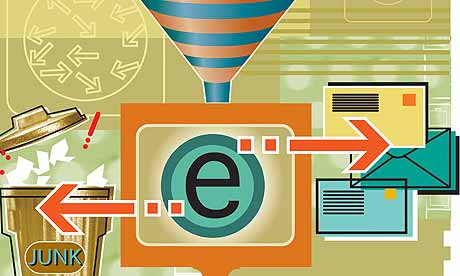0
The Internet, The Web and Electronic Commerce
Posted by NasriSiru
on
11:58 PM
URL

A URL is the website of a specific Web site or file on the Internet. URL stands for "Uniform Resource Locator", since it's so long it's shortened to URL. To be identified specifically, all URLs have two parts: a protocol & a domain name. The first part of a URL indicates what kind of resource it is addressing whereas the second part of a URL is the name of the resource.
HTML

HTML stands for HyperText Markup Language, which is the basic building blocks of webpages. HTML codes are written in the form of HTML elements consisting of tags enclosed in brackets within the web page content. The browser then interprets the HTML codes and displays the documents as a Web page.
Javascript

Javascript is a programming language created by Sun Microsystems, Inc. in 1994. . It's a method of manipulating webpages on a user's computer, without the need for refreshing the page. used to trigger simple interactive features, such as opening new browser windows and checking information entered in online forms.
Applets

It's a short form for "Java Application." Java applet is a short application (program) which is written using the Java programming language. Any Java applet can be included in an HTML page, much in the same way an image is included, using 'applet' tags. Java applets are the only safety way to add application (program) on your Web pages.
Blog

A blend of the term "web log", is a website or a type of website. Blogs are usually maintained by an individual with regular entries of commentary, descriptions of events, or other material such as graphics or video. It is known as an online journal, the new-age journal so people no longer have to worry of their diaries being found!
Wikis

The simplest online database that could possibly work. Wiki is a piece of server software that allows users to freely create and edit Web page content using any Web browser. Wiki supports hyperlinks and has a simple text syntax for creating new pages and crosslinks between internal pages on the internet.
FTP
A shorten form of "File Transfer Protocol." File Transfer Protocol (FTP) is a standard network protocol used to copy a file from one host to another over a TCP-based network, such as the Internet. FTP is built on a client-server architecture and utilizes separate control and data connections between the client and server. FTP users may authenticate themselves using a clear-text sign-in protocol but can connect anonymously if the server is configured to allow it.
Plug-In
Plugin meta-data is a .plugin file that contains plugin information. Every plugin should have exactly one meta-data file. This file is used by plugin manager to identify the plugin and know the details prior to activation. Because there are some fields which require translation, a .plugin.in file is written instead, from which the .plugin file will be derived after necessary translation.
Filters

It is a program that is designed to accept a certain type of data as an input, transforms it & outputs the transformed data.
Internet Security Suite

It contains a suite of utilities to maintain the security of the computer. Utilities such as spam blocker, antivirus, personal firewall & pop-up blocker are included. These are to protect the computer against virus or threats online that can corrupt your computer.







